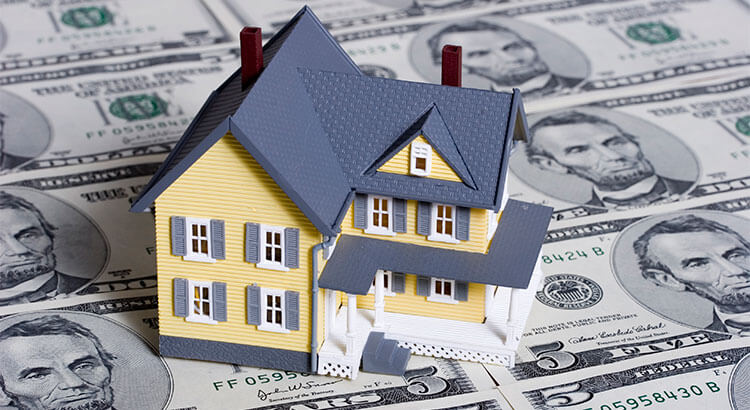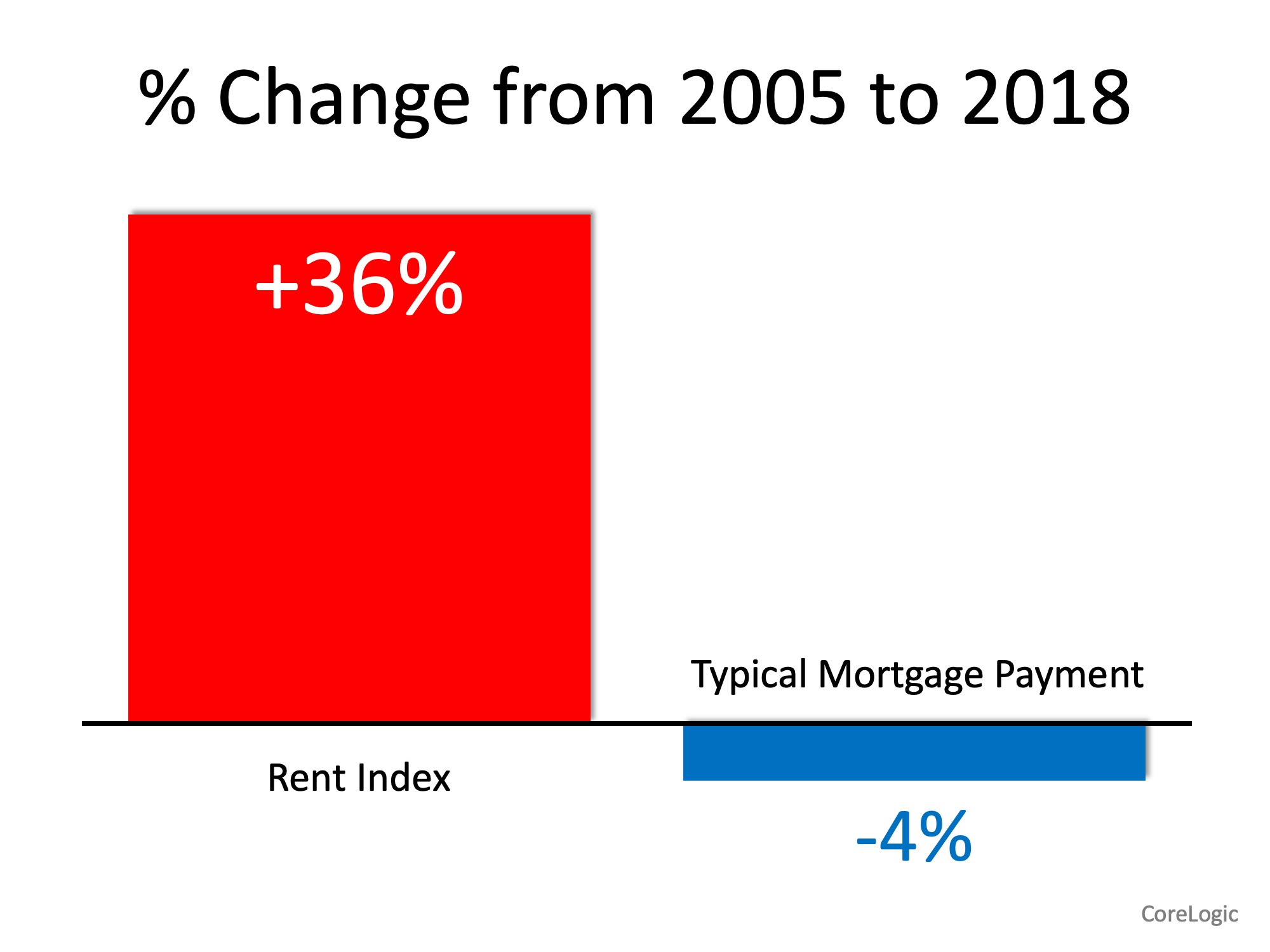Renters Paying Substantially More While Owning Costs Less

In a recent Insights Blog, CoreLogic reported that rent prices have skyrocketed since 2005. Meanwhile, the typical mortgage payment has actually decreased.
“CoreLogic’s national rent index was up 36% in December 2018 compared with December 2005, while the typical mortgage payment was down 4% over that period.”
Why the difference between the costs of renting versus owning?
It makes sense that rents have risen. However, how did mortgage payments decrease? CoreLogic explained:
“It’s mainly because mortgage rates back in December 2005 were significantly higher, averaging 6.3% for a fixed-rate 30-year loan, compared with 4.6% in December 2018.
The national median sale price in December 2005 – $190,000 – was lower than the $220,305 median in December 2018, but because of higher mortgage rates in 2005 the typical monthly mortgage payment was slightly higher back then – $941 – compared with $904 in December 2018.”
Additionally, a recent report by the National Association of Realtors (NAR) showed that purchasing a home requires less of your monthly paycheck.
According to the Economists’ Outlook Blog, NAR’s February 2019 Housing Affordability Index showed that the “percentage of income needed” to pay the typical mortgage has decreased the last three months.
- November – 17.3%
- December – 16.9%
- January – 16.2%
- February – 15.9%
Bottom Line
What does this all mean to the current housing market? We think First American said it best in a post last week:
“The mortgage rate-driven affordability surge has arrived just in time… Rising affordability has already benefited home buyers and, if the lower rate environment persists, we’re in for a great spring home-buying season.”
To view original article, visit Keeping Current Matters.
Buyers Want To Know: Why Is Housing Supply Still So Low?
While low inventory in the housing market isn’t new, it’s a challenge that continues to grow over time.
With Mortgage Rates Climbing, Now’s the Time to Act
Historical data shows that today’s rate, even at 3.45%, is still well below the average for each of the last five decades.
Why Inflation Shouldn’t Stop You from Buying a Home in 2022
Housing is commonly looked at as a good inflation hedge, especially with interest rates so low.
Real Estate Professionals Are Experts at Keeping You Safe When You Sell
Real estate professionals have learned new technologies plus safety and sanitation measures.
There Won’t Be a Wave of Foreclosures in the Housing Market
Most homeowners exited their forbearance plan either fully caught up or with a plan from the bank to start making payments again.
Avoid the Rental Trap in 2022
Before you decide whether to look for a new house or another apartment, it’s important to understand the true costs of renting in 2022.






